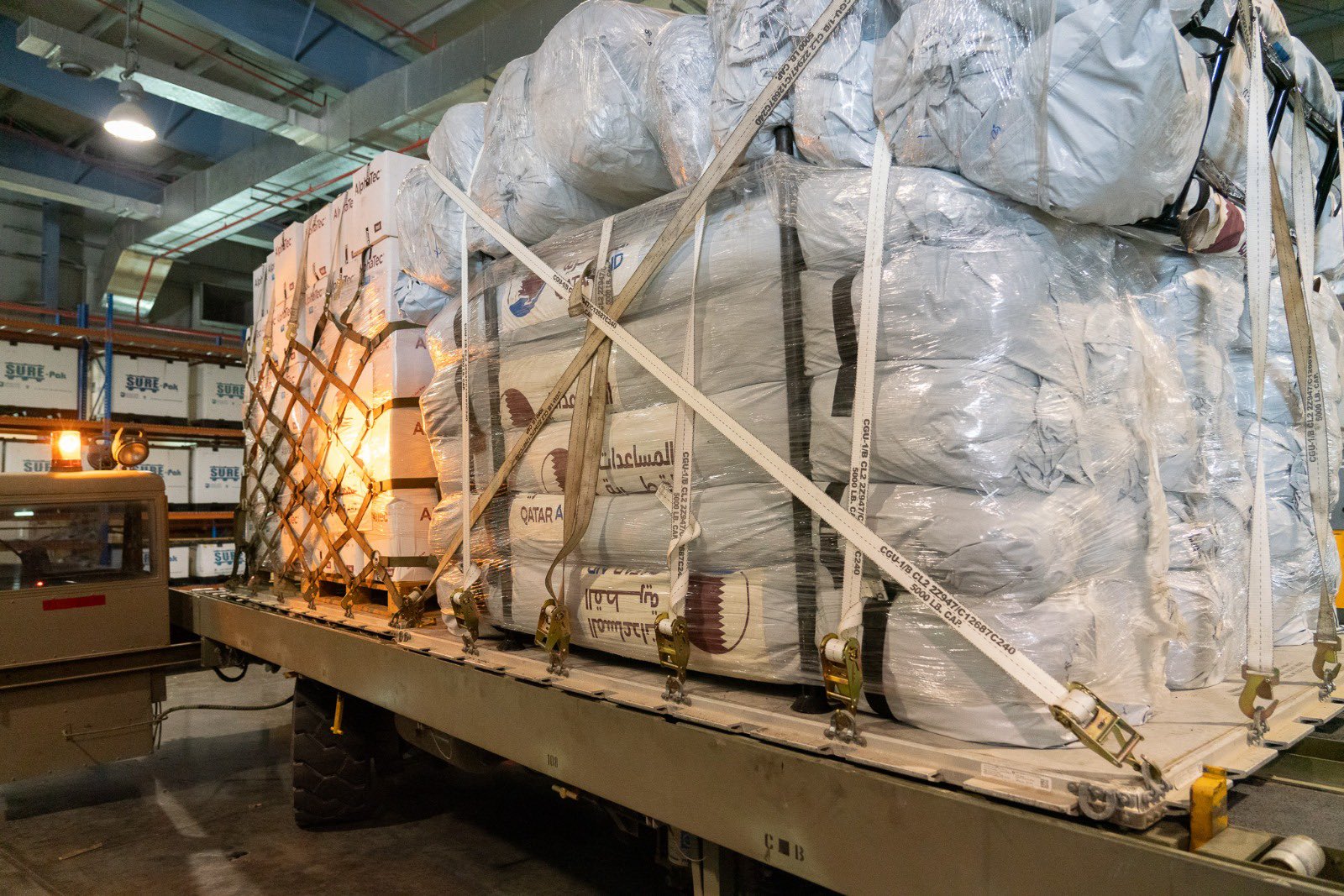International aid continues to arrive after Storm Daniel wreaked havoc on Derna and nearby coastal cities in eastern Libya on September 10.
Qatar has sent 58 tonnes of humanitarian and relief assistance to help the flood-stricken Libyan city of Derna, bringing the total Qatari aid to those affected to 267 tonnes.
The seventh and eighth Qatari planes from the Qatari Air Bridge to arrive at Benina International Airport in Benghazi on Sunday provided several different forms of aid. It included shelter essentials, electricity generators, food, and medical commodities.
The support package is provided by the Standing Committee for Rescue and Relief Works and Humanitarian Aids for Afflicted Areas in Brotherly and Friendly Countries, Qatar Fund For Development (QFFD), Qatar Red Crescent Society, and Qatar Charity.
Earlier this month, Qatar Charity (QC) initiated the ‘Libya Appeal’ campaign to assist Libyans wrestling with the aftermath of devastating floods that have killed thousands and forced countless more into displacement.
“Qatar Charity is preparing to deliver the necessary support to the people of the disaster-stricken areas in Libya, where the humanitarian situation is very challenging, and the scale of destruction is immense,” said Khalid Abdulla Alyafei, the director of the Emergency and Relief Department at Qatar Charity.
“We aim, through the ‘Libya Appeal’ campaign, to contribute to meeting the basic needs of the affected families and offering the necessary support to help them overcome this ordeal,” Alyafei added.
Qatar has stepped in to bolster efforts to support Libya since the devastating floods struck earlier this month.
In a tweet, Qatar’s Sheikh Tamim expressed his sincere condolences to the victims of the devastating floods in Libya.
“I extend to our brothers in Libya my sincere condolences and sympathy for the victims of the catastrophic floods, and we in Qatar declare our complete solidarity with the Libyan people to overcome this painful ordeal, and we ask God to have mercy on the dead, bring back the missing, and heal the wounded,” the Gulf leader wrote.
Political divide
Ever since a NATO-backed uprising toppled and killed veteran dictator Muammar Qaddafi in 2011, Libya has been engulfed by two competing administrations, one in the eastern region and the other in the western province.
Fears over whether the deeply-entrenched political divides would serve as an obstacle to humanitarian and rescue efforts surfaced in the immediate aftermath of the natural disaster, with concerns over sabotage by the different administrations.
However, the internationally recognised Government of National Unity, which sits in the capital Tripoli, said aid coordination between the various warring factions have appeared to be fruitful.
Next month, Libyan officials are expected to host an international conference to aid reconstruction efforts.
“The government invites the international community to participate in the conference planned for October 10 in Derna to present modern, rapid projects for the reconstruction of the city,” the eastern administration said in a statement.
However, General Khalifa Haftar’s spokesman, Ahmad Al-Mismari, appeared to take aim at global donors.
“Are donor countries going to take part, or are they going to wait for a conference organised by Dbeibah?” he asked. “This political polarisation has harmed Libyans.”
According to the World Health Organization, 3,922 deaths have been confirmed in Libya, though others have estimated the number could top more than 10,000.







